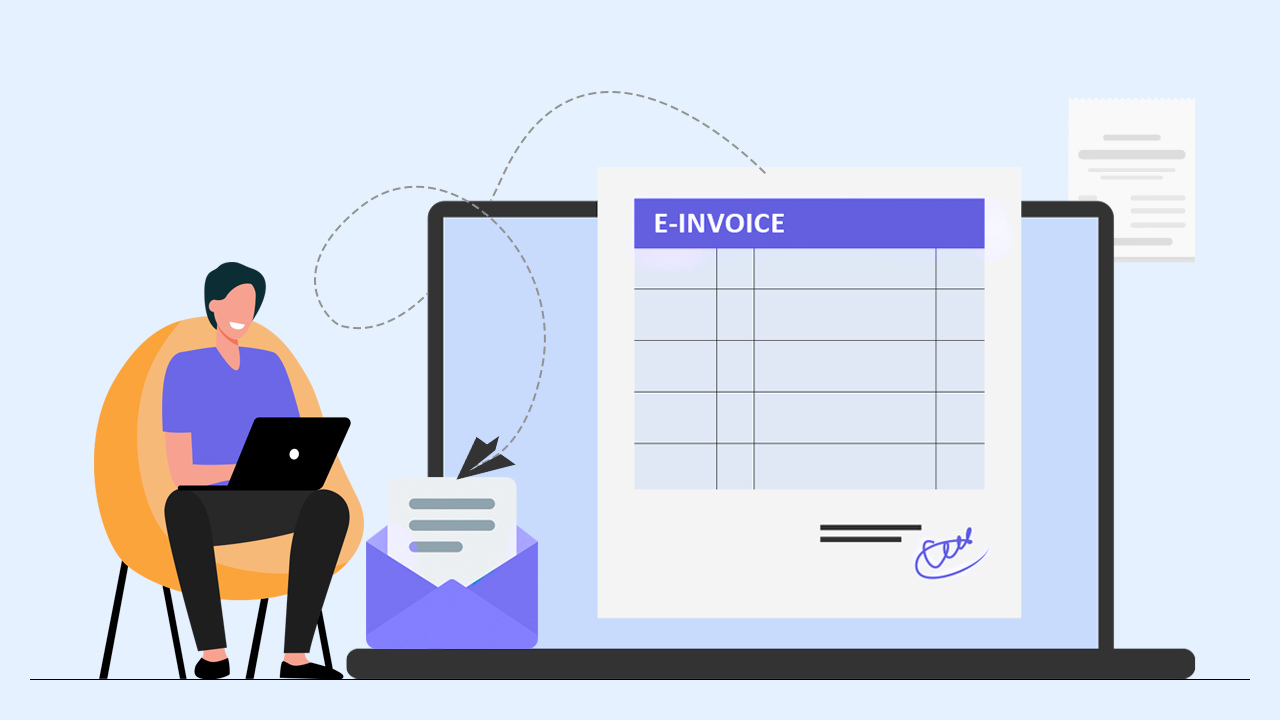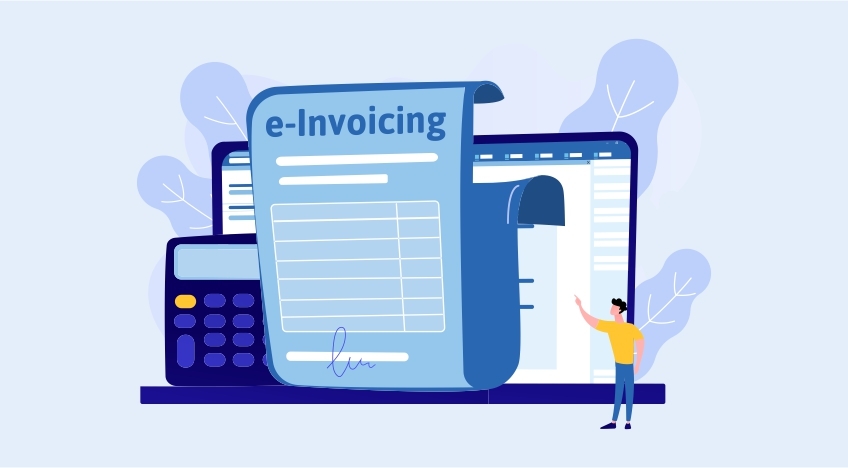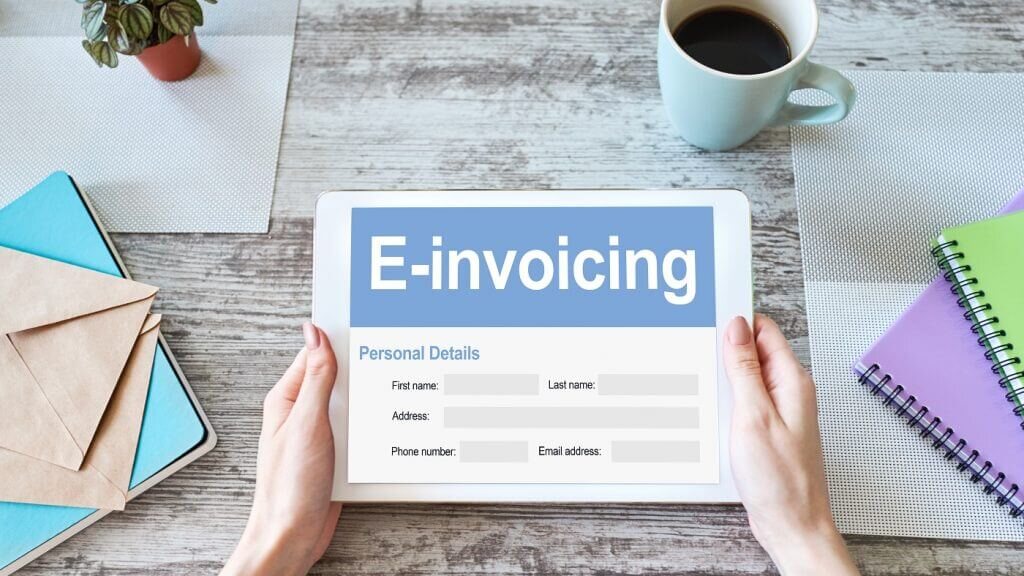Malaysia affirms its embrace of digital advancements by making e-invoicing mandatory for all taxpayers, with the first phase starting from 1st August 2024.
However, not everyone is required to follow this regulation. The Malaysian Government has introduced certain e-invoice exemptions for specific reasons. If you are uncertain about about which entities must implement Malaysia mandatory e-invoice, this article is for you.
Overview about e-Invoice Exemption in Malaysia: Who is Required and Exempt?
The implementation of what is e-invoicing commissioned by the Inland Revenue Department of Malaysia (IRBM) marks a significant change in tax administration. We will explore the specific regulations to identify when e-invoices are mandatory and when exemptions apply. Any Malaysian business owner needs to understand how to quickly adapt to these changing regulations.
The overview information below will help you have an overall view.

Required for…
In Malaysia, e-invoicing is mandatory for all entities engaged in commercial activities, including associations, companies and other business entities.
They are divided into many different trading forms:
- B2C Transactions: e-Invoices are required to be issued based on unique needs for transactions between businesses and consumers.
- B2B and B2G Transactions: Suppliers must issue e-invoices for transactions between businesses, and between businesses and appropriate government agencies.
- Buyer-self Generation: In cases where the supplier is exempt from Malaysia's e-invoices regulations or is a foreign entity, the responsibility for generating e-invoices lies with the buyer.
You should also understand the popular transaction types in e-invoices in Malaysia. These include invoices, debit notes, credit notes, and refunds.
Exempted for…
According to the e-Invoice in Malaysia guide, certain organizations and individuals are covered by the e-invoice exemption.
- Sovereign Entities: Includes rulers, ruling heads, and consorts as defined under Section 76 of the Income Tax Act 1967.
- Former Rulers and Chiefs: Exemptions apply, with exceptions for specific state officials, as defined by the same section of the Act. For example, Raja Perempuan, Tengku Ampuan, or Sultanah.
- Facilities and Consular Offices: Includes facilities provided by government, regulatory or statutory agencies, such as hospitals or consular offices.
- Government and Statutory Bodies: e-Invoice exemption is applicable to government agencies, state agencies, local authorities, and statutory bodies.
Understanding these audiences will help you know whether you need to comply with the Malaysian government's mandatory e-invoices application form or not. From there, you will be more proactive, especially when the deadline for implementing e-invoicing in Malaysia is approaching.
Why Does e-Invoice Exemption Exist?
The e-invoice exemption in Malaysia is driven by precise considerations. They are created from our experts' analysis and opinions.

- Distinct Government Regulations and Operations: Government agencies, state agencies, and local governments operate under strict financial regulations and accounting practices. They are consistent with public sector management processes, which require exemptions from standard commercial e-invoices requirements to maintain regulatory compliance.
- Different Legislative Mandates: The e-invoice exemption agencies are guided by separate legislative mandates, while also implementing separate accounting procedures. They will not be truly suitable or not able to innovate in time to adapt to e-invoicing regulations. Maintaining the same state of use is to avoid conflicts in legal practices.
- Sovereign Status: Entities such as rulers, ruling chiefs, and their consorts are exempt due to their unique legal and administrative framework as sovereign entities. It requires compliance with specific protocols that are distinct from normal commercial operations.
- International Agreements: Consular agencies and staff need to comply with diplomatic protocols and international agreements governing financial transactions. This explains their exemption from commercial e-invoicing regulations in order to maintain diplomatic relations and international obligations.
- Avoid Multiple Reporting: Some types of income, such as dividend distributions or employment income, are subject to a comprehensive reporting framework. Keeping the old practice with these e-invoice exemptions eliminates the need to report changes to e-invoicing. It also leads to more efficiency in e-invoicing regulatory compliance.
e-Invoice Exemption: Which Types and How It Influences
The e-invoicing system in Malaysia, in addition to specific exemptions, also has unique situations such as e-invoice exemption examples. They ensure efficiency and practicality for different types of income.

Types of Income e-Invoice Exemption
Some specific types of income and expenses are not required to comply with e-invoicing model regulations:
- Employment Income: Salaries, wages, bonuses, and other forms of compensation that employees receive are exempt from e-invoicing. This ensures that the normal payroll process is not affected by the new regulations.

- Alimony: Financial support payments made to an ex-spouse pursuant to a court-endorsed request or agreement do not need to be e-invoiced. This e-invoice exemption simplifies the process of arranging personal finances and maintains privacy.
- Distribution of Dividends: Dividends distributed to shareholders will be exempt from electronic invoicing. It typically includes dividends paid from after-tax profits and helps streamline transactions between shareholders and the business.
- Scholarship: Educational scholarships are awarded to students who are not subject to e-invoicing requirements. This e-invoice exemption creates favorable conditions for disbursement of funds to support the educational needs of pupils and students as quickly as possible.
- Pension: Pension benefits, including regularly paid pensions and lump sum payments, are e-invoice exemption.
- Zakat: Charitable contributions prescribed by Islamic law, known as Zakat, are exempt from e-invoicing. Donations will be collected and distributed efficiently, without wasting time.

Impact of e-Invoice Exemptions
Reasonable e-Invoice exemptions regulated by the Malaysian government bring many effects, both positive and negative, to overall economic performance:
- Reduced Administrative Burden: Entities that are e-invoice exemptions benefit from a significant reduction in administrative workload. They save time and resources by not having to adjust existing resources to meet e-invoicing requirements. For example, the payroll department can continue to operate without integrating e-invoicing software for salary payments.
- Easier Regulatory Oversight: e-Invoice exemption reduces the workload for regulatory officials tasked with monitoring compliance with e-invoices (when certain entities do not need to comply according to this new method).

- Complicating e-Invoicing Regulations: The application of e-invoice exemption may further complicate the enforcement of e-invoicing regulations. It will be more difficult for regulators to monitor and comply with certain types of income and transactions covered by the e-invoice exemption. Automation also becomes more difficult.
- Causes Inconsistencies in Documentation and Reporting: There will be differences in the way transactions are recorded and reported between entities that do e-invoicing and those that do not. For example, while commercial transactions follow strict electronic invoice protocols, payments such as pensions or salaries do not. This lack of uniformity makes it difficult for Malaysian authorities to maintain a comprehensive and cohesive financial record keeping system.
While e-invoice exemption brings practical benefits to certain types of income and entities, it also introduces complexity in regulatory enforcement and documentation. Balancing this factor is crucial to implementing and successfully implementing e-invoicing in Malaysia.
5 Tips about e-Invoice Exemption You Should Know
Some practical advice from our experts after many years of operating e-invoicing in different projects will help you manage e-invoice exemption cases effectively. This is most important as the deadline for implementing e-invoicing in Malaysia is approaching.

Understand your Category
See if your business falls under the e-invoice exemption. Government agencies, statutory authorities and certain types of personal income are e-invoice exemption. You will avoid unnecessary compliance steps if you understand this.
Keep Up with Guidelines
Regularly monitor IRBM and e-invoicing guidelines. Exemption rules are subject to ongoing updates, and keeping up to date with updated information ensures you don't miss any important changes.
Consult a Tax Professional
Seek advice from tax experts if you are unsure about your exemption status. They provide appropriate guidance and help you navigate complex situations within the law.
Monitor Financial Transactions Closely
Track all financial transactions to ensure that your e-invoicing exempt and non-exempt income is classified correctly. Misclassification of income can lead to compliance issues.
You should consider using a software that has an accounting module built into e-invoicing, like Odoo, to maintain accurate records.
Educate your Team
Ensure your accounting and finance team has a clear understanding of the requirements and exemptions for electronic invoicing. Regular training sessions can help them stay updated and handle compliance effectively. This reduces the risk of errors and ensures smooth operation.
Final Thoughts
e-Invoice exemption in Malaysia has many details to keep in mind, and certainly, you need to understand them to be more confident than ever before this mandatory e-invoicing process. Of course, it's not just through one article that you can clearly grasp all the information you need about e-invoicing. Each business inherently has different categories and ways of operating.
That's why A1 Consulting is here to help you. Besides being a trusted partner of Odoo in Malaysia with the ability to provide modules related to e-invoicing, we also take the time to thoroughly consult and offer custom solutions for your own Malaysian enterprise.
Don't hesitate to contact us for more detailed information about e-invoice exemption and others about this process for your company!
